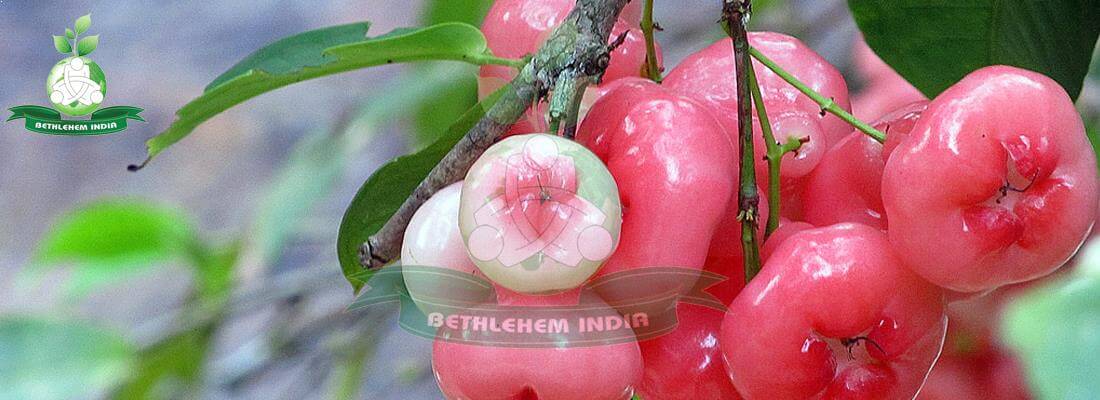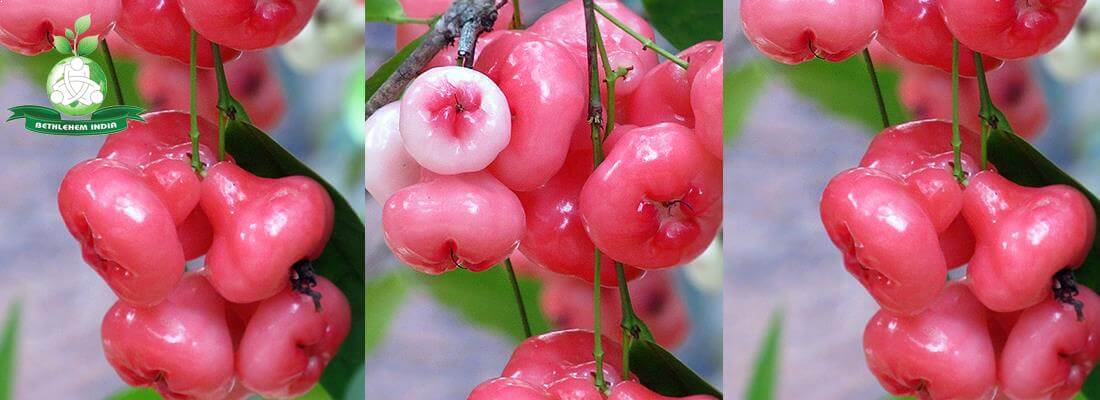
Rose apples, although the name might mislead you, are not related to roses or apples. In fact, rose apples are most closely related to guava, and although there are multiple species, the most commonly eaten variety has the scientific name Syzygiumjambos. The plant is a shrub or a small tree that is actually native to Southeast Asia, but it was spread throughout the world as an ornamental plant. However, it is now considered an invasive species, as it can grow and propagate very quickly, overtaking local flora. It has dozens of names, depending on which country you find yourself in, leading to mistaken identity of the fruit trees as something else entirely. For example, jambu is a popular name for this fruit, which is very similar to jaamun, which is a different fruit in many areas of India.
The high fiber content of rose apples makes them very good for regulating the passage of food through your digestive tract, relieving constipation and more serious health conditions. Also, in traditional medicine, the seeds of rose apples have been used to prevent diarrhea and dysentery.

The active organic compounds in rose apples, combined with vitamin C and vitamin A, have become known as effective cancer-prevention treatments. Early research and traditional medical texts claim that prostate and breast cancer is reduced by adding rose apples to your diet. For hundreds of years, rose apple decoctions have been used as a diuretic substance, which helps to clear out liver and kidney toxicity, while also boosting the overall health and metabolic efficiency of the body.
The active an volatile components in rose apple have been linked to having antimicrobial and anti-fungal effects. Research has shown that it can protect the skin from developing various infections and can boost the strength of the immune system against infection diseases. The stems, seeds, and leaves of certain cultivars can be highly toxic and contain trace amounts of cyanide. Only consume rose apples from trusted markets and avoid excessive consumption of other parts of the fruit besides the flesh and skin itself.
Copyright @2022 Bethlehemindia.com.